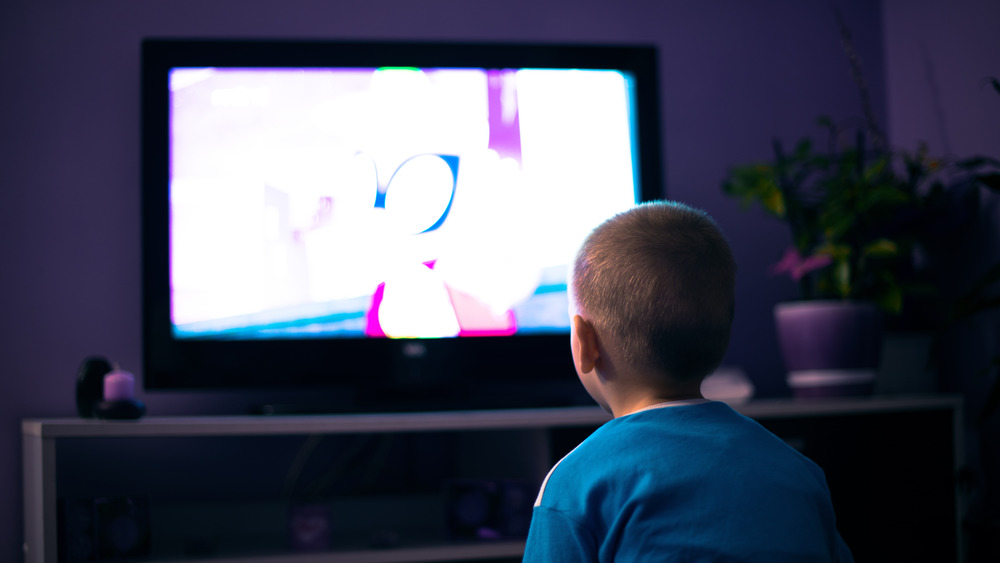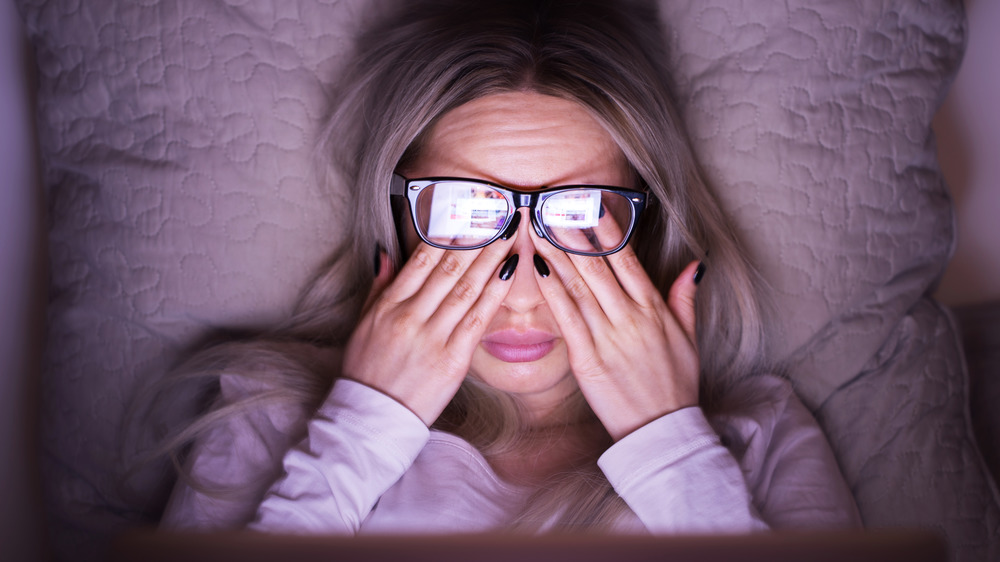Does Sitting Too Close To The TV Actually Hurt Your Eyes?
If there's one thing most of us would agree we should do to protect ourselves from damaging our vision, it's to sit at least two feet away from the TV. Wait — it was two feet when we were kids. It must be more for adults, right?
Actually, our mothers may have been more interested in breaking up the argument about who got to sit right in front of the TV, than in actually protecting our eyes. Experts now agree that sitting as close to the TV as you want won't have any lasting harmful impact on the eyes. That doesn't mean you should do it for long periods of time, though. Dr. Kenneth Chang, a comprehensive ophthalmologist at the Massachusetts Eye and Ear Infirmary, told ABC News, "I don't think people were meant to be looking at a computer screen all day long, [but] it's not going to cause long-term damage."
Staring at a screen for too long can cause eye strain
There are other problems that can come with staring at the TV too long, regardless of how close you're sitting. For example, eye strain is a common condition that can lead to pain, blurry vision, fatigue, and headaches (via Mayo Clinic). Thankfully, the effects are short-term and the remedy is simple — turn off the TV and get some rest.
Another problem is that when people stare at a screen for long periods of time, they tend not to blink, leading to dryness. Dr. Richard Rosen, director of ophthalmology research at New York Eye and Ear Infirmary, told ABC News that, "If a tear film is a little on the dry side from not blinking sufficiently ... then the quality of vision suffers. It's sort of a temporary phenomenon."
Also, for kids in particular, if they are continually sitting close to the TV, it may be a sign that the child is actually nearsighted and should have their eyes tested. Debra Ronca, a contributor to the How Stuff Works website, told Scientific American, "Sitting close to the television may not make a child nearsighted, but a child may sit close to the television because he or she is nearsighted and undiagnosed."


